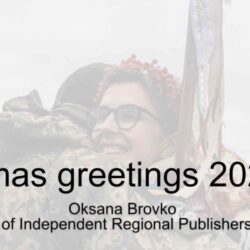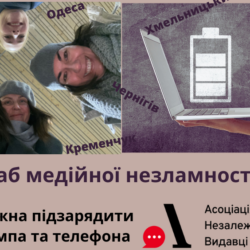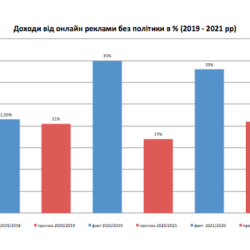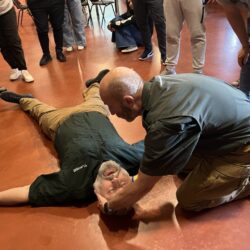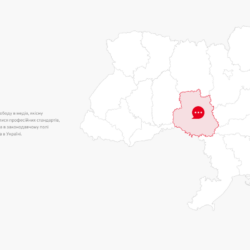
Alona Martyniuk
Iryna and Serhii Horbul spent two months in blockaded Mariupol and one month in two different russian filtration camps. During this time, they learned how to deceive the militants of the Donetsk People’s Republic, cook soups under fire, hide money in garage bricks and cover it with plaster, take water under artillery fire, and survive bombardments. What did the family go through in the filtration camps and how do they live now?
Mariupol residents Iryna and Serhii Horbul told the editorial staff of Evacuation.city what they experienced in the besieged town and what russian filtration cost them.
Before February
Iryna Horbul’s family loves everything related to the sea. Being the representatives of the second generation of Mariupol residents, they are used to seeing two sides of the coin in everything.

On the one hand, factories are terribly polluting the environment; the Illich plant and Azovstal are spewing poisonous smoke into the air. On the other hand, the town lives thanks to these factories. Serhii, Iryna’s husband, works hard as a metallurgist but has a stable salary without delays. In general, they have an ordinary good life – like everyone else. Family, home, and two young children.
Iryna works as a kindergarten teacher. In the evenings, she goes to taekwondo training with her older son. On their way to training, she often takes an extra circle to walk along a recently built sea pier – the Azov area lined with factories has been actively developing a decent infrastructure for the past 5 years. Everything is calm. No worries.
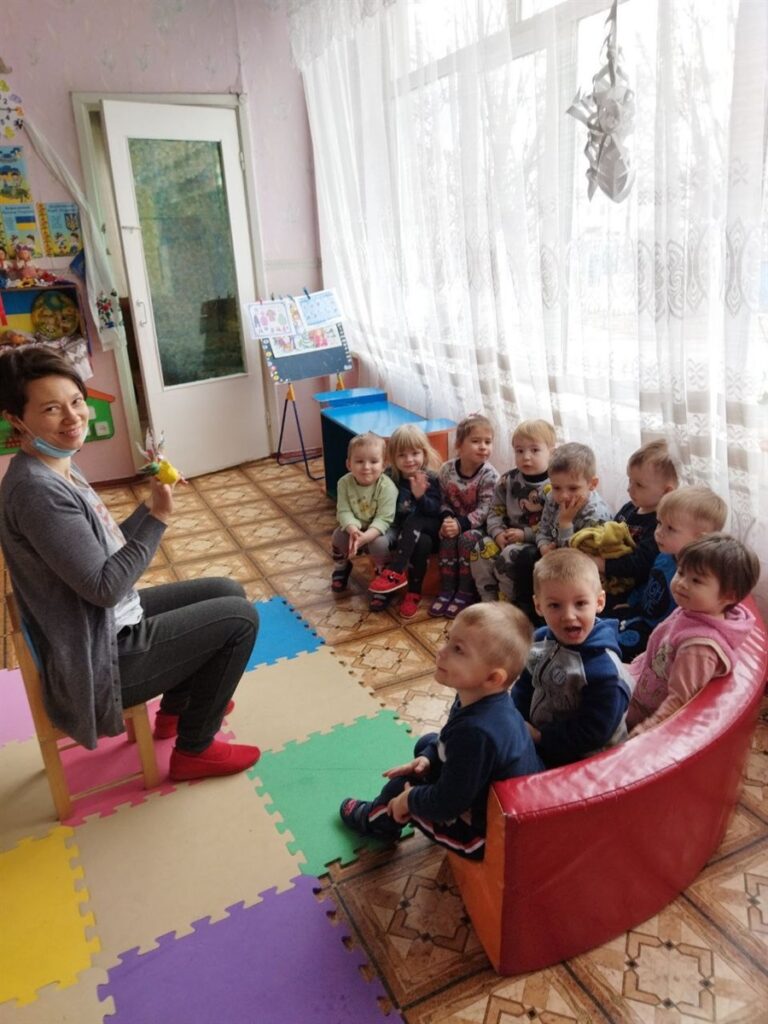

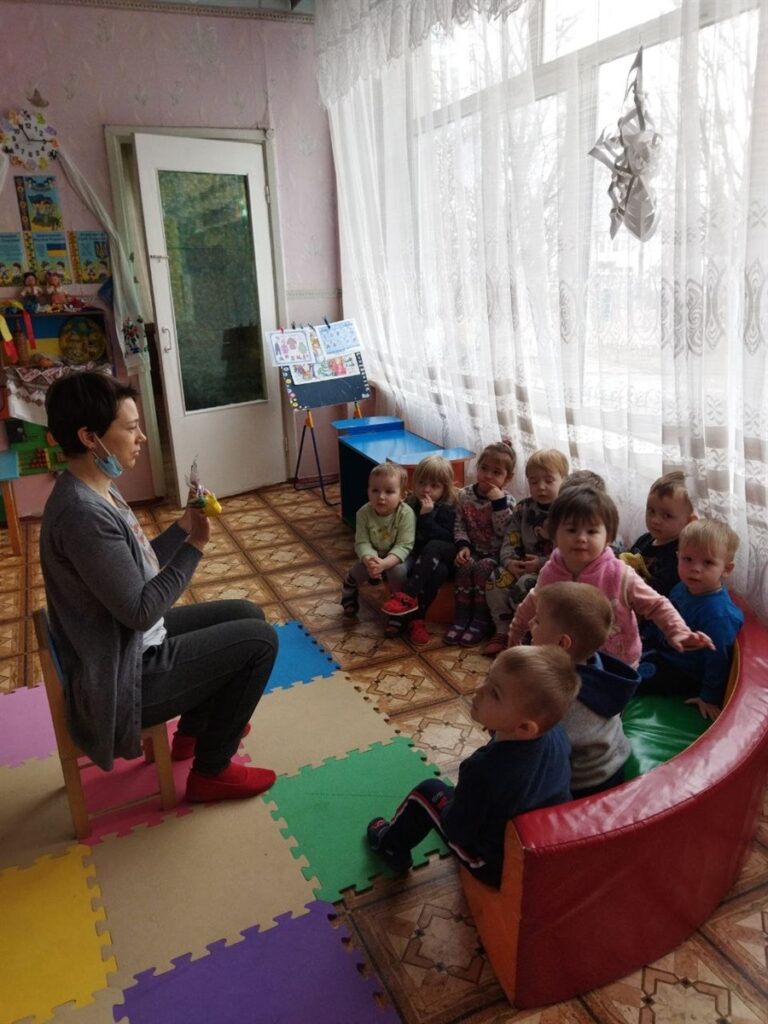
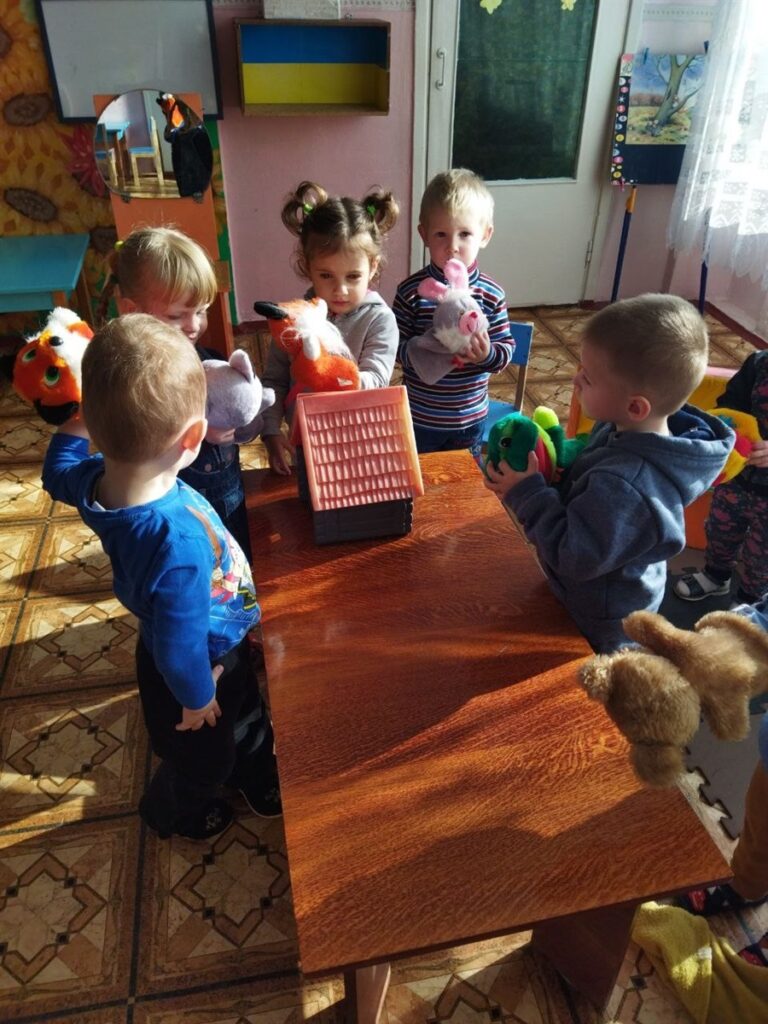
We will see according to the situation
February 24 didn’t start well as the couple’s older son fell ill. The phone had been ringing all morning: at first, notifying her that there was no need to take the younger one to school because there would be no classes; then from work, informing them that she didn’t need to go to the kindergarten, but had to meet the children near the basements.
Iryna rushes to work to run back literally an hour later. The head of the kindergarten, who lived on the outskirts of Mariupol, couldn’t make it to the town: she asked to “distribute” the children back to their parents, close the kindergarten and go home, leaving only the basement open.
There is a small grocery store near Iryna’s house proudly named “Grace”. The woman bought bread and meat just in case; at home, Serhii laughed wondering, why she had bought so much food as if for a year of famine. Ira nods but packs the freezer with meat and dries half of the bread for a rusk. She put two packed evacuation bags in the corridor. Her husband looked at the preparation process with scepticism because there was no panic in the town and no shop queues.
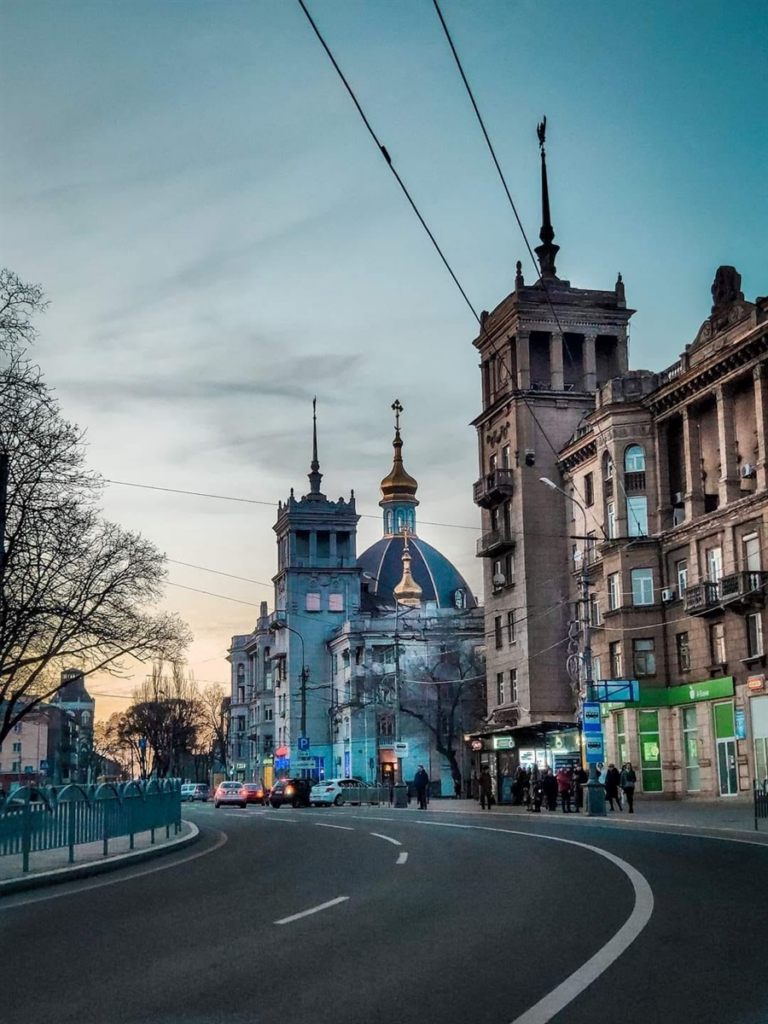
Only explosions were heard on the outskirts and a siren wailed every half an hour. Serhii remembers that the same thing happened in 2014 when the russians with the militants of the so-called Donetsk People’s Republic tormented the left bank of Mariupol. But the Ukrainian military was able to recapture the town. Serhii’s brother called in the afternoon. He had been living in Poland for several years and insisted they should leave for Poland as Ukraine was shelled. However, Serhii was sure that the town was fortified. No panic. And then – they would see according to the situation.
From February 25th to the end of February. Panic at the Pentagon
The district of Mariupol, where the couple lives, is called the Pentagon in the town. When Iryna moved to her husband’s flat after their wedding, Serhii told her that if one looked at the maps of the headquarters of the US Department of Defence, one could see that their quarter was very similar to it due to the location of its buildings. Ira did not check this; she just took her husband’s word for it.

On February 25, the Pentagon was the first to be deprived of power. Outside the window, the temperature was below zero, the radiators felt icy. Serhii and Iryna sealed their windows to keep warm, so the temperature in the apartment remained at 16-17 degrees for about a week.
The district is holding on with restrained optimism – everyone says that you have to wait for a week and everything will be over. Gas stoves in apartments work around the clock because there is gas and water so you can normally cook and even warm up a little from the flaming blue fuel.
However, in late February, shops start to run out of food. People flood the rows of counters en masse and buy a lot of products, candles, lighters, and matches. Everyone can see that there are no new supplies of food and necessary things, and sellers are offering the last things from warehouses. It became difficult to find even bread – Iryna once again blessed her supplies and quickly joined the kilometre-long queue when it was brought to one of the stalls for the last time.
Early March. Port City, rot and rubber glass
March starts at -10°C. And a humanitarian disaster. On the third day, the mobile connection disappears in Mariupol. Water disappears on the fifth day. Gas – on the sixth day.
Gloves and jackets cease to be outerwear – they sleep in them. Children cry and ask to take off their hats because their heads are itchy.
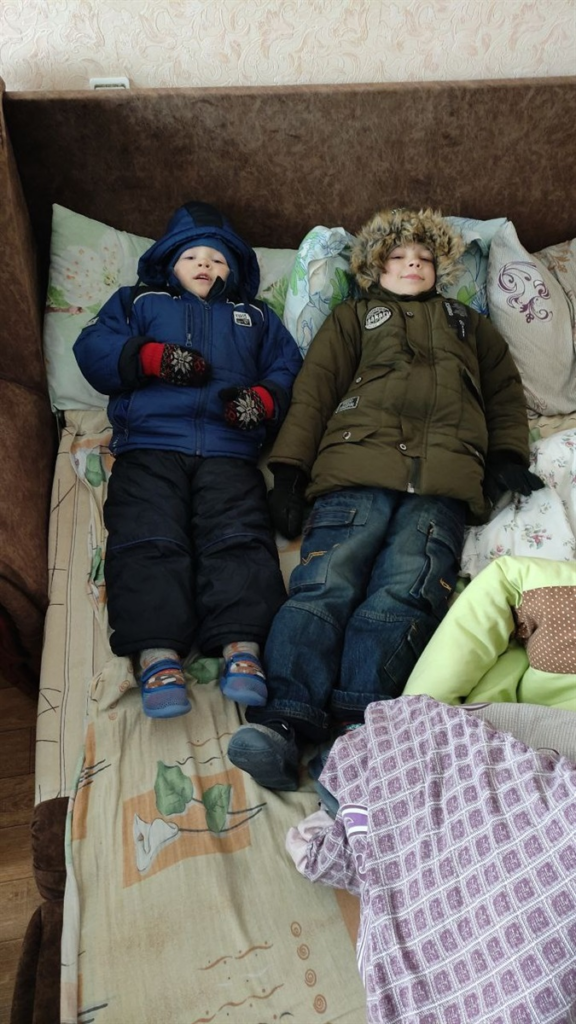
The woman’s mother and father live in the so-called twenty-third district at the town’s other end. Even before the connection disappeared, the parents called Iryna in hysterics saying that the russians were destroying Kurchatov Street, next to the Pentagon, so it was time to take the children and quickly go to their twenty-third district.
On the third of March, the couple takes a risk. Their car is moving carefully along the Volodar highway and two huge stores: Metro and Port City. Iryna’s eyes widen in surprise: crowds of apocalyptic proportions are in front of shopping centres. Later, she learns that both stores were opened by the Ukrainian military because there is no electricity, foods are perishable, and at least people would stock up for a few days.
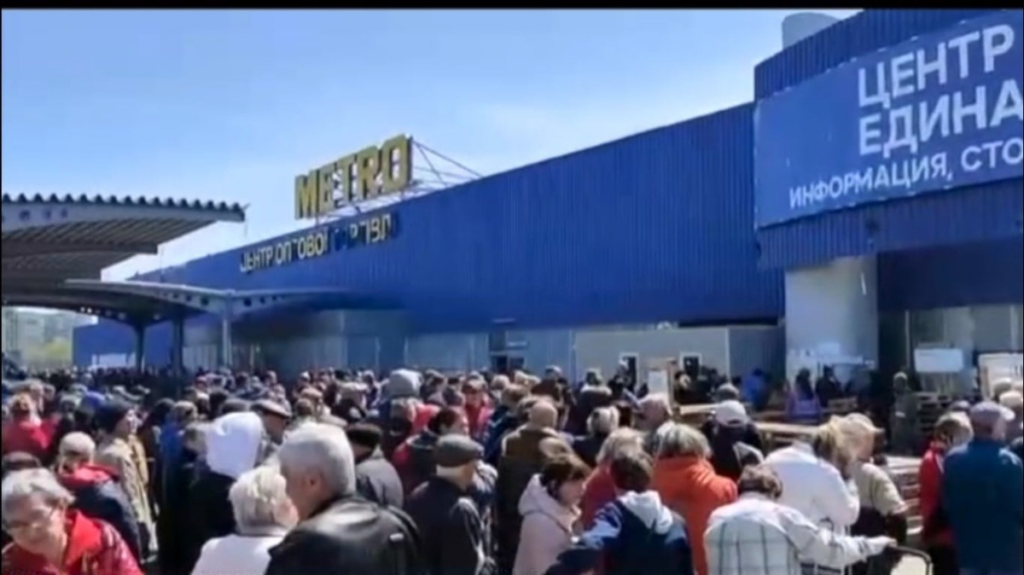
The native area welcomes Ira with chaos: boxes from slow cookers and frying pans taken from stores get wet in the rain and sleet. This dirt also becomes a blessing – Mariupol residents drag heavy buckets of dark snow into their bathtubs in order to melt it and get at least some water.
The temperature is stable at mum and dad’s apartment: -2°C, because all the windows have already blown out from the blast waves of the blows in front of them. The family moved to Ira’s brother’s apartment, which still had windows. He is a military volunteer, so he left the town on February 25.
That day Serhii goes to Port City to get some food. A huge shopping centre lives in darkness. There is a disgusting smell of rot in the air. The man’s flashlight illuminates crushed eggs and rotten fish on the floor. People are moving all over Port City trying to grab in the dark and bring at least something useful to their families. Serhii finds a warm jacket and sweater in a store and goes home as there is no point in looking for food. On the way, he hears a characteristic whistle and rushes into an arch near the store.
A second later a shell flies into Port City. Serhii sees a huge shopping mall burning, where he has just been, and where there are still a lot of people. Almost everyone who did not manage to run out died that day.
Ira can see it without explanation from the man’s chalk-white face when he returns home.
And the jacket that Serhii found in Port City turns out to be yellow and blue. Later, the husband’s parents run in: they have just survived the shelling and are ready to move anywhere to get out from here, so they load into the father-in-law’s Lada one produced back in 1975 and return to the Pentagon.
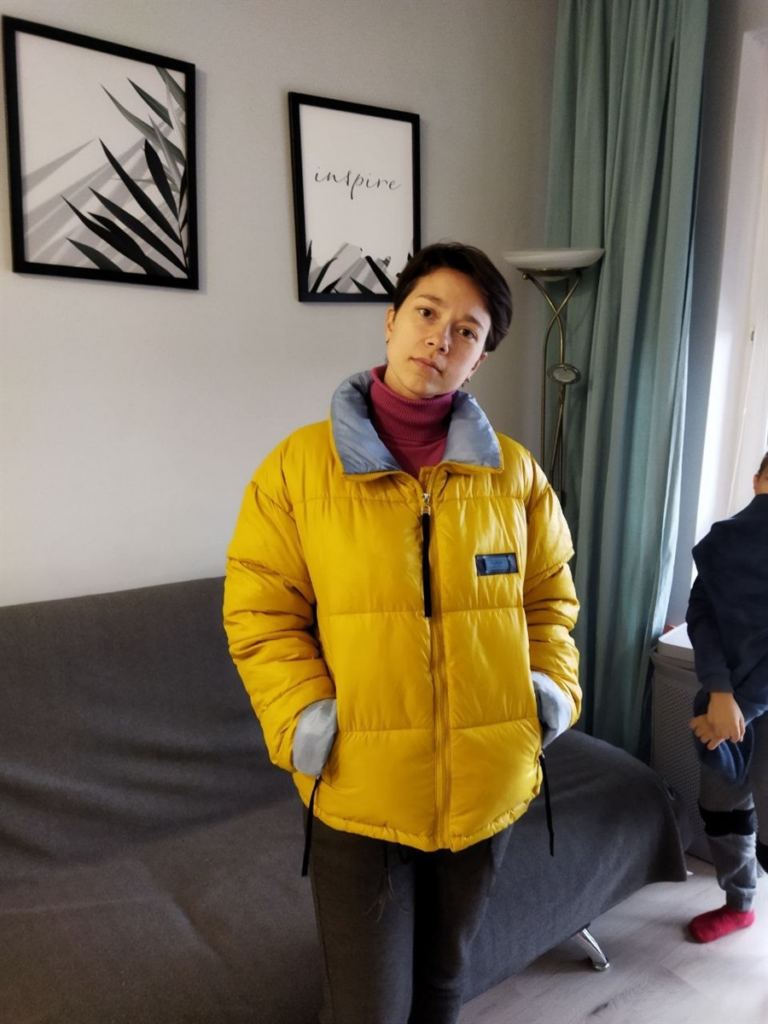
Pentagon lights
Ira and her family had not been at home for only 2 days, but the Pentagon changed for the worse. The Mariupol resident shivers partly due to the cold, because no jacket can keep her warm. She also shivers partly due to the impression that she’s on the set of an apocalypse movie, but somehow she can’t get off the set.
On March 6, bonfires can be seen in the streets. People understand that gas and heat supply will not be available shortly. Ira sees her neighbours ransacking the shops: now they are not hunting for slow cookers, but are taking out everything that can burn. Hence the pieces of counters on the streets.

People take apart entire entrances. Apartments with wooden doors are at particular risk. The intercoms do not work, so Mariupol residents try to close the entrances with at least a bolt. It practically does not help. Serhii takes apart a beautiful sofa from someone’s apartment and marvels at how quickly everything, except for food and clothes, has lost its value.
The Pentagon has its own strange routine: from five in the morning, the streets get filled with people with pots. Everyone has the same dynamics: making a fire, putting a pot of soup on, running away.
No one goes out in the evening. Therefore, it is necessary to cook for a longer period and to invent a way to keep the food warm. Ira takes a large double bedspread and turns it into a thermos. They put bags on the plates: in this way they could eat soup longer from relatively clean dishes, simply by changing the bags each time.
Water is precious because there is only one well within the Pentagon. Everyone already knows that shrapnel has killed a person near it. That’s why several neighbours always go there, so that in case of an emergency, at least they can bring the injured back home.
Birthday
On March 16, the Horbuls go to an 82-year-old neighbour’s birthday party. In the apartment in front of them, the couple is greeted not by the lady celebrating her birthday, but by a huge ball of fire. From the place where there was a window sill, a red-hot shell flies directly at Serhii: the man is carried out into the corridor by a blast wave.
The wardrobe door squeezes Ira. Detached, the woman is surprised that the door has become like paper; at least, the only paper should burn so quickly and easily.
Their legs do not hold anyone anymore. Later, Iryna will ask herself if it was a contusion, but for now she is lying on the floor, pressed by the whole weight of the world. The wall remains on her teeth are exfoliated with glass dust. The second shell is already flying, but Iryna and Serhii, covered in thick concrete snow, creep into their apartment in the dark because there are children there. They don’t have time to open the door because the eyehole flies out of it and whistles through the entire apartment.
The older son crawls towards them, looking for his parents. The child is crying. The parents have blue lips and aching hearts.
The younger son sits in a corner silently and looks at them. And then he crawls to the toys and silently starts playing.
Basements
If something whistles, it is better to immediately fall face down. The main thing is to get close to it as much as possible so that the fragments fly by.
A plane always arrives at night. The whistle means that the bombs are about to fall.
The younger son asks Ira: mother, why do you lie on top of us at night?
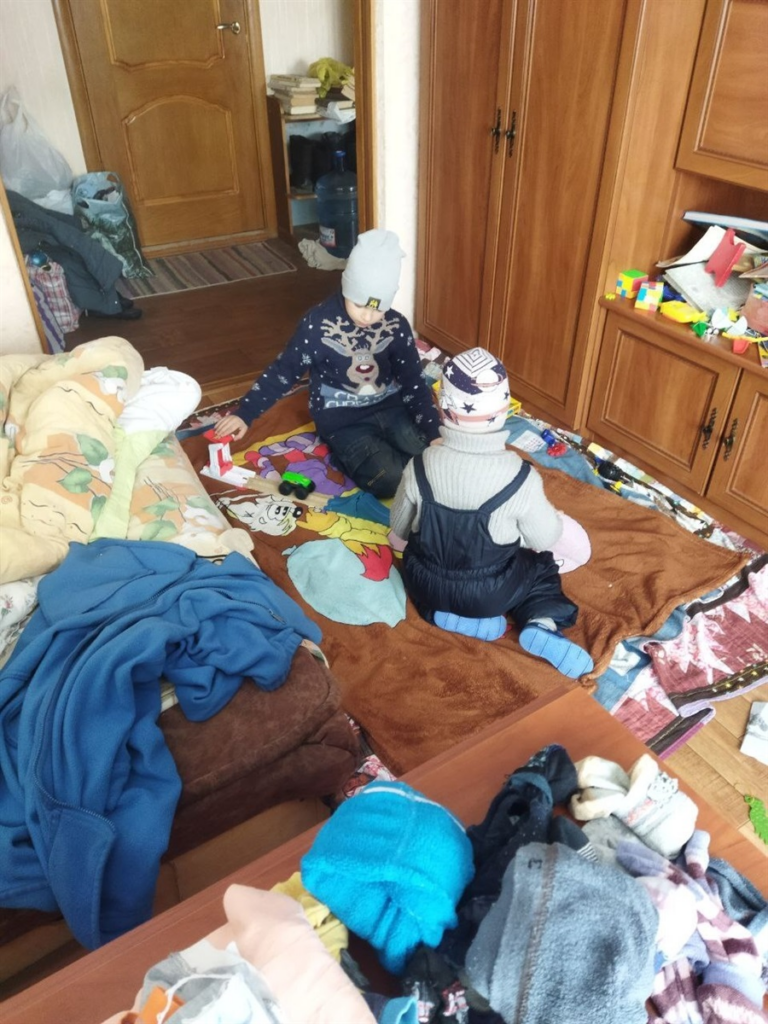
Now the entire Horbul family lives in the basement. Ira persuades her husband to go to the Drama Theatre because she heard that there are buses going to Zaporizhia. Serhii categorically refuses because the shelling is so dense that one risks never coming back. A few days later friends of theirs come and announce that the Drama Theatre was bombed.
On March 18, several families get to the garages and take their cars to take a chance and leave. Serhii also leaves, but soon returns with nothing. The Horbul car is no longer in the garage. In the middle of March, people steal everything that can move.
Only the Horbuls, pensioners and small children stay in the destroyed building. They are trapped.
Ira and Serhii feel such emptiness as if everyone has a small black hole inside.

One evening, soldiers of the Armed Forces of Ukraine hide in their house. They ask not to say anything to anyone. The militants of the Donetsk People’s Republic have a simple tactic: they don’t risk their lives, and they don’t look for anyone. They simply take a tank to a building where they believe the Ukrainian soldiers are hiding and shell a person out of there, along with the building and everyone there.
On March 26, a militant from the Donetsk People’s Republic approaches Ira and says that the same fate awaits them. He shows her his banana republic passport, but very quickly, like in the movies, takes it away. Ira does not believe him although she warns her family.
An hour later, the shelling begins. Men from neighbouring buildings help Serhii extinguish the fire with all the water left on the outskirts. To Ira’s surprise, everyone survived again.

That night they cook soup from all the leftovers in one pot. First, they feed the children, and then they eat the leftovers in turn. All the residents of the burned basement use the same spoon. The foods have already rotted and spoiled since long ago.
Now everyone gathered in the apartment near the supporting wall. Blankets, pillows, and ottomans were brought in, and the children were put on them like dolls or soldiers. Adults huddle together tightly, like puzzles, to keep at least a little bit warm. It is a moment of strange, disturbing calm while waiting for the next shelling.
Volonterivka. The way to Sartana
The morning of March 29 begins with the arrival of russian soldiers. They burst into the driveway and warn that they plan to completely destroy the building.
Ira and Serhii look at each other. The couple knows that 40 people were killed in this way at 19 Metalurgichna Street: they buried everyone who was in the basement. There was a children’s room.
The people of the Pentagon go to the street following the russian soldiers. Everyone is told to wear white armbands because without them one can be shot by snipers who nest on Mariupol rooftops. The russians themselves have a flaming Z on their armbands.

Ira moves as if in the fog. The March frost penetrates her to the bones. The woman no longer understands where she is being taken, why, or what is happening. The couple gave their children to their parents as the russians let the pensioners go ahead. The reason for such kindness is realized by the Horbuls just 5 minutes later as all men under 60 have to pass through a roadblock. Pensioners are simply not interesting to Russians.
Serhii is humiliated. Russian soldiers rudely force everyone to undress as they look for tattoos worn by soldiers of the Ukrainian Armed Forces, or marks from the belt of a machine gun. The line gathers, Mariupol residents are dragged, and the men stand naked to the waist in the piercing wind. When everyone is finally released, they are told to go further, to the settlement of Volonterivka near Mariupol.
A battered small bus – an Illichivsk PAZ one – is waiting for them. For 40 people. But the russians brought up to 200 Mariupol residents picked up from the entire neighbourhood.

A “media personality” suddenly appears from the nearest house – that’s how Serhii calls this man. Although the Soviet word “chief” would suit him best. The “Chief” announces that it is wonderful that they are all here today, and that Russia will save everyone. After all, she, the mother, will feed, warm and protect them from Ukrainian Nazis.
Next, a comedy unfolds in front of the couple’s eyes: soldiers carry benches and two twenty-litter containers of water from nearby buildings. One woman’s nose is bleeding, so cotton wool and hydrogen peroxide are carefully brought to her. Children are ceremoniously given candies and cookies.
Hungry, nervous, disoriented adults sit on benches and greedily drink water listening to promises from the russian military. The “chief” says: everyone will be taken to Sartana, a settlement near Mariupol. Everyone will be accommodated there, warmed, and given food.
Sartana
The bus is full. Iryna has two children in her arms – only people with babies are sitting, while all the others are lying on top of each other in the aisle. The settlement is not far away, within a 20-minute drive; however, the bus makes several trips because it is physically impossible to pick up two hundred Mariupol residents in a battered PAZ bus.
Everyone is unloaded in Sartana near the Commandant’s Service of the invaders waiting in the cold wind. And here the image of good russian soldiers evaporates.
First, a seventeen-year-old boy is taken out of the bus. The barrel of a machine gun is pushed into his back – he is accused of giving food to Ukrainian soldiers. He is brought to the Commandant’s Service with a machine gun poked between his shoulder blades. Ten minutes later the Mariupol resident comes out – he lied that the Ukrainians forced him to feed them and he had no choice. The russians believed him but promised that if they discovered he was lying, they would shoot the boy without a trial or investigation.
Iryna tries several times to talk to the russian soldiers, to ask what will happen next – but it’s useless. At first, they try to answer the questions calmly, but literally in a few minutes they burst into swearing. Here the Horbuls will hear the word “filtration” for the first time, and that without this magical “filtration” they are nobody and nothing in the territory of the DPR. However, it is not clear to the couple what it is.
Suddenly, the soldiers announce that there was no accommodation for them; all the villages are full of people. Those having relatives in Sartana should go to them. Those having no relatives can do want they want and go where they want; they might go to kindergartens and schools, but they must pass filtration first.
While the russians are delivering this speech, a vehicle with bread appears out of the fog. Hungry and tired people reach for food, but bread is given only to children under the age of twelve – a russian soldier takes a loaf of bread and removes the crumb with his hand. What he tore off, he puts into the children’s hands. Forget about knives or gloves. A military man walks around with a phone and records the handout – the queues and the van, but not the process itself. In the evening there will be a story about good russians for russian television.

By chance, almost miraculously, Serhii’s father meets a colleague from work who invites Ira and her children to his house, and her husband and parents stay in a house with a stove. This can be called incredible luck because these acquaintances have a boiler – Iryna was able to wash herself and bathe her children for the first time in a month.
The woman understands that they need to figure out what filtration is as soon as possible and get out of there.
Last trip to Mariupol
Iryna washes the dishes and listens to the russian news behind her back. The newsreader says: hooray! Good russians brought great humanitarian aid to Donetsk. Now residents of Donetsk can take home household appliances: washing machines, refrigerators, and ТV sets.
The woman grimaces in disgust. Yesterday, she saw huge trucks with household appliances full of other people’s furniture, washing machines, and refrigerators, leaving Mariupol.

She and Serhii thought for a long time about what to do next. They had been living in Sartana for a week, observing the local order. Car queues for filtration in Bezimenne spread for several kilometres: rumours reached Sartana that one could wait for their turn in a tent camp from two days in good conditions and up to ten in bad ones. People who did not go through this process disappear in the basements. At the family council, the Horbuls decided to walk to Mariupol, leaving their children with their husband’s parents, and see what had happened to the town during these two weeks.
Especially since the family has a secret that they don’t tell anyone – cash securely sealed in the walls of the garage. The family did not want to go anywhere without cash.
So on April 12, the Horbuls went to Mariupol on foot.
From the garden near which Serhii lives, Mariupol residents often see their town being bombed from Sartana. The Horbuls shudder with Azovstal’s metallic groans, but they can do nothing but watch as the fireballs fly at their home again.

And it’s easier to go. So it seems to Mariupol residents that at least something belongs to them for now – at least, the freedom to return home occasionally.
The Horbuls go through Volonterivka, black with smoke, to their Pentagon
Serhii looks around and does not recognize the neighbourhood of his childhood: everywhere there are piles of garbage, and among them there are crosses and hungry dogs that are pulling things. The Horbuls are afraid to look closely, but they guess. The people of Mariupol bury the dead near the entrances, but graves are not deep as they have to run away from the shells so as not to fall into the same grave. Hungry dogs take advantage of this situation.
The Horbuls understand: they need to take money from the garage and leave. Mariupol does not exist anymore.

Garage and preparation for the filtration
If the couple had known that their garage was surrounded by the “guard” of the DPR militants, they would have been afraid to go there at first. However, they did not know about this and sneaked into their hiding place. The DPR militants were unusually busy as they were greedily looting things not looted before them. The Horbuls came to their own garage twice and were told to go away twice; but during this time, the couple came up with an entire plan to evacuate to Europe.
In Sartana, the Horbuls could buy a russian map, or, more precisely, buy it from their acquaintances that had gotten it during the filtration process. These acquaintances said that the rumours about Bezimenne were true. Russians examine the entire phone book, messenger correspondence, and a gallery from smartphones, restoring even deleted ones with special programs. People suspected of at least some sympathy for Ukraine really disappear in the basements.
Therefore, the best way to pass filtration is to pretend to be an adept of the “russian world”, to denounce everything Ukrainian, and to confess an incredible love for russia and the Soviet Union.
But the risk is there and it is quite high.
Avoiding filtration will not work at all because, without it, every russian soldier can stop you in any place of the so-called “DPR” and start abusing you: strip you, check your phone and interrogate you. To break out of this grey swamp, the Horbuls need two identical grey pieces of paper with notes about successful filtration.
After the first trip to Mariupol, Serhii was able to call his brother in Poland and just to say that they were all alive. The family worrying and looking for ways to save their relatives from Mariupol immediately gave the Horbuls an action plan in case they managed to break into the territory of russia: they gave the numbers of familiar volunteers taking people from the federation to the territory of Europe. There were no options to go to unoccupied Ukraine.
Iryna received a message from her mother and the woman’s heart became a little warmer. It turns out that with the help of her brother’s acquaintances, the woman was taken first to Russia, and then to Germany, and now her mother is safe.
On April 22, when the Horbuls are standing in front of their garage for the third time, they have already decided to go to Bezimenne and are slowly preparing for it: they delete all their data in the phone and work out their answers for the russians.

The Horbuls don’t know how long they will have to go through that filtration, so the couple takes all the food supplies from Mariupol that can be taken from the Pentagon: a pack of burnt macaroni, a few battered cans and even a package of lard black from soot. Iryna takes some summer clothes for the children from home.
This time there is one DPR militant near the garage, the couple persuades the soldier to let Serhii into the garage for at least two minutes – Iryna stays waiting for her husband at the gate and has a social conversation.
It turns out that the young man is from Donetsk itself. The boy describes the processes in the city using the expressions such as “bullshit” and “it used to be better”. In 2015, he was drafted into the DPR army and he found nothing better than to stay in it.

While Iryna carefully answers the boy’s questions about their apartment in Mariupol, Serhii nervously smashes the garage wall with a crowbar as the man forgot which brick he had put the family money behind. Time plays against him and the watch on his hand shows that seven minutes have already passed, and he is allowed to stay there only for two minutes. At the moment of greatest despair, a black metal box with savings looms among the pile of crimson dust – the man quickly hides the money behind his shirt and hurries to Iryna.
The wife sees Serhii from behind the gate and notices that he is holding the hem of his shirt. However, the boy does not ask questions and Mariupol residents quickly return to Sartana. Everything worked out, but the next item on the list was filtration.
Bezimenne: filtration
In late April, the entire Horbul family consisting of Iryna, Serhii, their two young children, and her husband’s parents, are standing in line for the filtration buses.
Trucks with bedridden people and people with disabilities drive past them as the russians take away disabled Mariupol residents and install them in the local churches.
The Horbuls are scared. But they are ready – they are the last ones in their queue for the bus. And in a strange way it helps them. In Bezimenne, it was decided that their PAZ bus was to be the first to go through the filtration.

The pre-filtration room is an old Soviet school. The gym is packed with rusty beds. There are no mattresses, only bare metal nets; when you sit down, your buttocks sink to the floor.
The smell is so strong that you can cut it with a knife: there are many pensioners in diapers left on metal nets. No one takes care of these people. Toilets on the football pitch behind the school are disgusting concrete boxes with Soviet-style Male/Female signs. Therefore, people defecate where others have not yet done so; Iryna warns her relatives to be careful not to enter the products of other people’s vital activities.
Along the corridor from the gym is the school canteen, where, surprisingly, people receive hot meals. The only condition is to endure the smells that stick to the skin like flies to sticky paper.
The couple accidentally comes across a short mattress and a Pilates mat; they put their children there, and they lie down on the metal nets unable to sleep. You can’t close your eyes, even though your body is tired. Iryna is afraid of tomorrow.
But he turns its face to her as the next morning, without explaining the reasons, their entire family and several other people are transported from the stricter and FSB-controlled Bezymenne to Starobeshevo where, as Mariupol residents already know, the regime is a little easier. Hopefully, the Horbuls get on the bus.
Starobeshevo
Starobeshevo is about an hour and a half drive from Bezimenne. Upon arrival, the Horbuls are brought to the old Culture Centre. Residents of Mariupol are greeted by the already familiar smell of excrement – now the toilet surrounds the building instead of hiding behind it.

The family sinks into the broken and twisted seats, which still retain some dignity only because of their red velour upholstery. Some people sleep on stage; others are right on the floor.
Then the events develop very quickly. Iryna and Serhii are separated from her husband’s parents (the latter’s passports are taken away) and the couple’s children, and they are all assigned to different filtration lines.
Serhii is taken to an ordinary police station – he doesn’t even really remember what it looks like. First, a man fills out a questionnaire: it contains classic questions about age, occupation, and marital status. And, of course, the FSB-like ones: about the attitude towards Ukraine and possible connections with the Ukrainian Armed Forces.
Serhii knows that he cannot write how he really feels about his country. That’s why he writes clearly “I hate it” in front of the question about Ukraine.
In the next room, Iryna fills out the same questionnaires. The Mariupol resident knows that they don’t pay attention to women that much – that’s why she writes “I am neutral” in front of the question about Ukraine.
Synchronously, but in different offices, the couple’s fingerprints are taken. Next, they take pictures of them like criminals: in profile and face. Smartphones are taken from both of them and the entire phone book is deleted, but the correspondence is not restored; the spouses exhale synchronously in the two rooms.
Iryna is not pressed on for a long time. She knows that the russians examine women’s arms to the elbows, but they don’t force anyone to undress, at least not in her queue. It is ironic that she, the sister of a military volunteer from Mariupol, does not arouse any suspicions of the russian fascists.
Serhii is in a more complicated situation. It seemed to him that he would no longer be surprised by anything, but he still suppresses his inner indignation when russian soldiers – ordinary cattle – force him to undress and examine every centimetre of his skin. But you have to suppress your disgust as it works. He is released as well. Now both residents of Mariupol have grey pieces of paper proving their successful passing of the filtration, i.e. tickets to freedom.
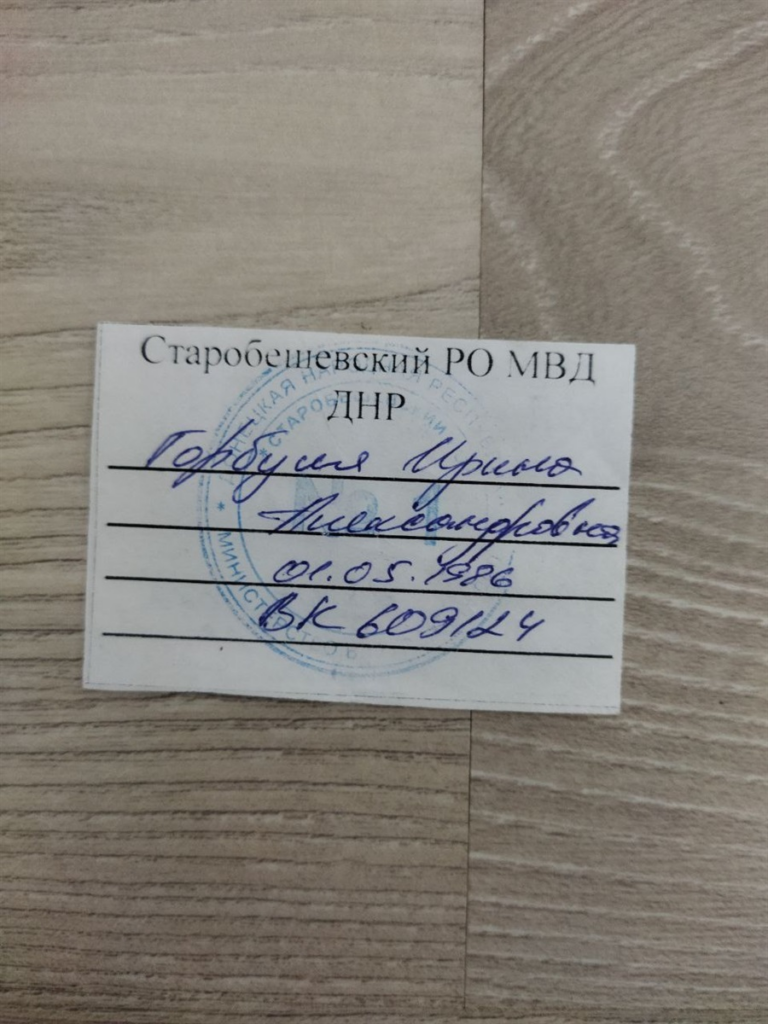
Taganrog, Roma money exchangers, and volunteers
Iryna has been waiting for her husband with his parents and children for a long time: they are trying to get her on a bus saying that her husband will arrive later. However, the family is waiting and politely rejects all these offers. The passports of Serhii’s parents were returned; the pensioners are of very little interest to the russians. When her husband approaches the family, Iryna hardly holds back tears – freedom seems close, but they are still afraid to believe it.
The Horbuls are lucky again: after successfully passing the filtration within two hours, which process people wait for ten days, avoiding the basements, they immediately get on the bus that takes the Ukrainians to russia.
This is such a rare story that they wait a few more hours until at least a few more people show up so that the bus does not go “empty”. During this time, Serhii and several other men were asked to bring a lying disabled woman onto it. It also underwent russian filtration. She was placed in the aisle.
Serhii is happy because he expected the worst. However, at the very border with russia, it turns out that additional filtration is organized for men. An old russian colonel keeps everyone in a private conversation for at least half an hour.
Serhii straightens his shoulders and takes the initiative. The story about a metallurgist, who all his life wanted to work at a plant somewhere in Chelyabinsk and deeply hates everything Ukrainian, looks so convincing to the russian fascist that he lets the man go ten minutes later and tearfully wishes him luck in the russian factories.
And finally Mariupol residents cross the russian border. It is very strange for them to be happy about this, but walking half a kilometre to a tent camp, the Horbuls already know that they have done everything possible for their freedom.
In the tent camp, kind russians actively pour Ukrainians hot tea, although they do not feed them, and give another russian map. The family is immediately wary of such sudden kindness and later they will understand that their sense, as usual, did not deceive them.
Immediately, Kyivstar appears on Ukrainian SIM cards and Mariupol residents start frantically checking the news and texting their relatives until the bus arrives at Taganrog at two o’clock in the morning.

At half past three, on the 30th of April, Mariupol residents reach the russian city. From the bottom of her heart, Iryna rejoices in civilization: hot water and rubber slippers for the shower. Volunteers provide disposable towels, lead them to a canteen, show them where to pick up second-hand items, and offer dry rations. And they smile and promise that now everything will be fine, and russia will take care of everything. The Horbuls look at each other in silence they know very well that they can’t tell anyone about their future plans there.
Out of nowhere, several “media personalities” of the same type as the “chief” from Volonterivka appear. With a cheery voice, the mass event planners invite the Ukrainians to live in the endless areas of Nizhnevartovsk, Siberia, and Sakhalin, promising financial aid from the russian government and a star from the sky.
Mariupol residents thank everyone very much and refuse generous offers to go to Sakhalin. A complicated legend about relatives in Moscow frees them from the need to explain anything else to pro-Kremlin volunteers, so the Horbuls board a train to Rostov. Previously they have managed to exchange hryvnias for roubles from local Roma at an exorbitant rate. They need to go to the abode of evil from Rostov, i.e. Moscow.
From Moscow to civilization
All this time Serhii quietly keeps in touch with the volunteers whose contacts he received from his brother. A woman from Moscow remotely buys them tickets to the capital of russia as you can’t buy tickets online without a russian credit card. Mariupol residents give her the money later in cash.
Volunteers oversee the entire journey of the Ukrainians – an attentive driver comes to the station to pick them up, and takes them directly to the temporary shelter for the day. The house of the man who hosts Mariupol residents is not far from the centre of Moscow, which shines with all the lights; but as soon as the car leaves the heart of the axis of evil, the Ukrainians can see rows of grey and tattered panel buildings.

The volunteer provides a room to the Horbuls; his parents sleep in the other; he sleeps alone in the third one in a chair. The family can take a normal shower and eat hot food – the Muscovite listens to their story and repeats with shock that the information promoted in russia is completely different. It is true that he is clearly ashamed to repeat the guidelines on Ukrainian fascists.
In the morning, at six o’clock, a car arrives to pick up the Horbuls and takes them to the Estonian border. Mariupol residents are not alone in small minibuses as a girl from Luhansk Oblast is traveling with them, who also has to evacuate through russia. The Ukrainians reach the border with the Baltic countries in a few hours. On the Lithuanian border, they get into a huge queue of cars that are also trying to leave the federation. FSB agents scurry among the cars and volunteers change their plans and decide to go to the Estonian border.
Surprisingly, there is no queue there and no FSB agents. On April 30, the residents of Mariupol cross the russian border and find themselves in European Estonia.
Finally, free.
Poland
On that cold northern night, the Horbuls spend the night in the yellow houses of the Estonian border guards. Some of them speak russian and are shocked to hear the story of the Ukrainians.
In the morning, the residents of Mariupol are taken away by European volunteers, who took over the Horbuls after the Russians; the next night, the tired travellers spend the night in Tallinn.
The first thing that the tired minds of the Ukrainians noted in Europe was the absence of the Stone Age. Iryna finally washes her hands of Mariupol soot, which she has not been able to remove for several weeks, and is surprised: a week ago, she and her family were in the place of the homeless. Tallinn sharply showed the Horbuls what smouldering clothes they had. Fatigue and depression, which the woman has been suppressing for several months, begin to reappear.
Volunteers will take the Horbuls to Poland, to her husband’s brother. It is usually already hot in Mariupol on the first day of May – but it is cold here. The Poles bring clothes to the Ukrainians en masse so that they don’t freeze, and they help them complete all the documents for temporary protection within a day. The children are allowed to go to kindergarten and school almost instantly, the husband gets a job, and Ira is offered a job as a teacher’s assistant. The whole family is registered for a Polish language course.
Ira knows that it is necessary to rejoice, but a black fog of depression is rolling over her and Serhii. Everything that has happened since February comes back suddenly as if it had been waiting for this.
The older son brings from school all the food that Poles give to younger schoolchildren on certain holidays – the child has remembered so well what hunger means that he tries to either share each gram of candies with his friends or carefully carry it home in his backpack.
The apartment that Mariupol residents rented as soon as they received their first salaries is located close to the airfield. When planes fly low, they make a low hum. Iryna closes her ears, breathes, and concludes that there is no need to fall on the floor, no matter how scary it is.
Only in late June their black depression slowly loosens its claws. Mariupol residents begin to notice the sun and rejoice in safety and life.
Iryna and Serhii still closely follow news about their hometown and transfer money to the Ukrainian Armed Forces.
But they can no longer see the glare of the Pentagon’s lights.
Editor and co-author of the text: Iryna Pelts.
Prepared under the auspices of the Association “Independent Regional Publishers of Ukraine” as part of the implementation of the grant project “The Women in News with WAN-IFRA”. The views of the authors do not necessarily reflect the official position of the partners.
